The following is an adaptation of this Twitter thread.
I realise that only ridiculous people (I say this with affection) are going to willingly read the 249-page Foreign Interference (Countermeasures) Bill, but it's also really important, so this is me attempting to tweet a break-down of what's in it...
First, caveats that I'm not a lawyer, this is all based on my understanding of what I've been reading all week, if there are any errors, corrections and comments welcome, etc. etc. etc. I'll be sharing screencaps of the proposed legislation and/or explanatory notes.
FICA is the law that the PAP would like to introduce to deal with foreign influence or interference. So first, we must ask, what is "influence"?
The answer is: anything to affect ___ in any way, including seeking to maintain the status quo.

What about the other key term, "foreign"? Who is considered a "foreign principal"?
Well, are you a citizen of Singapore, or a Singapore-registered entity where your principal place of business is Singapore? If the answer is no, congrats, you foreign.
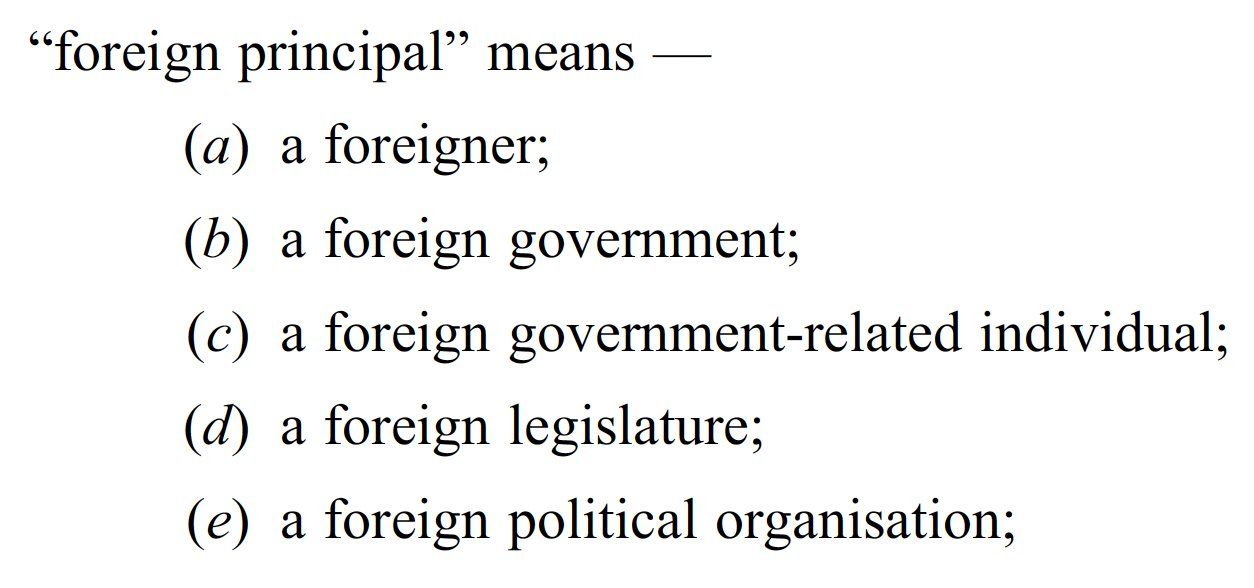

Now we know who is foreign. FICA is very concerned about individuals/entities doing political things on their behalf. But how is "on their behalf" defined?
Did you have any written/unwritten contract, agreement or understanding? Did they give you some money? Or maybe it was a collaboration where you worked together? FICA thinks you did a thing on their behalf.

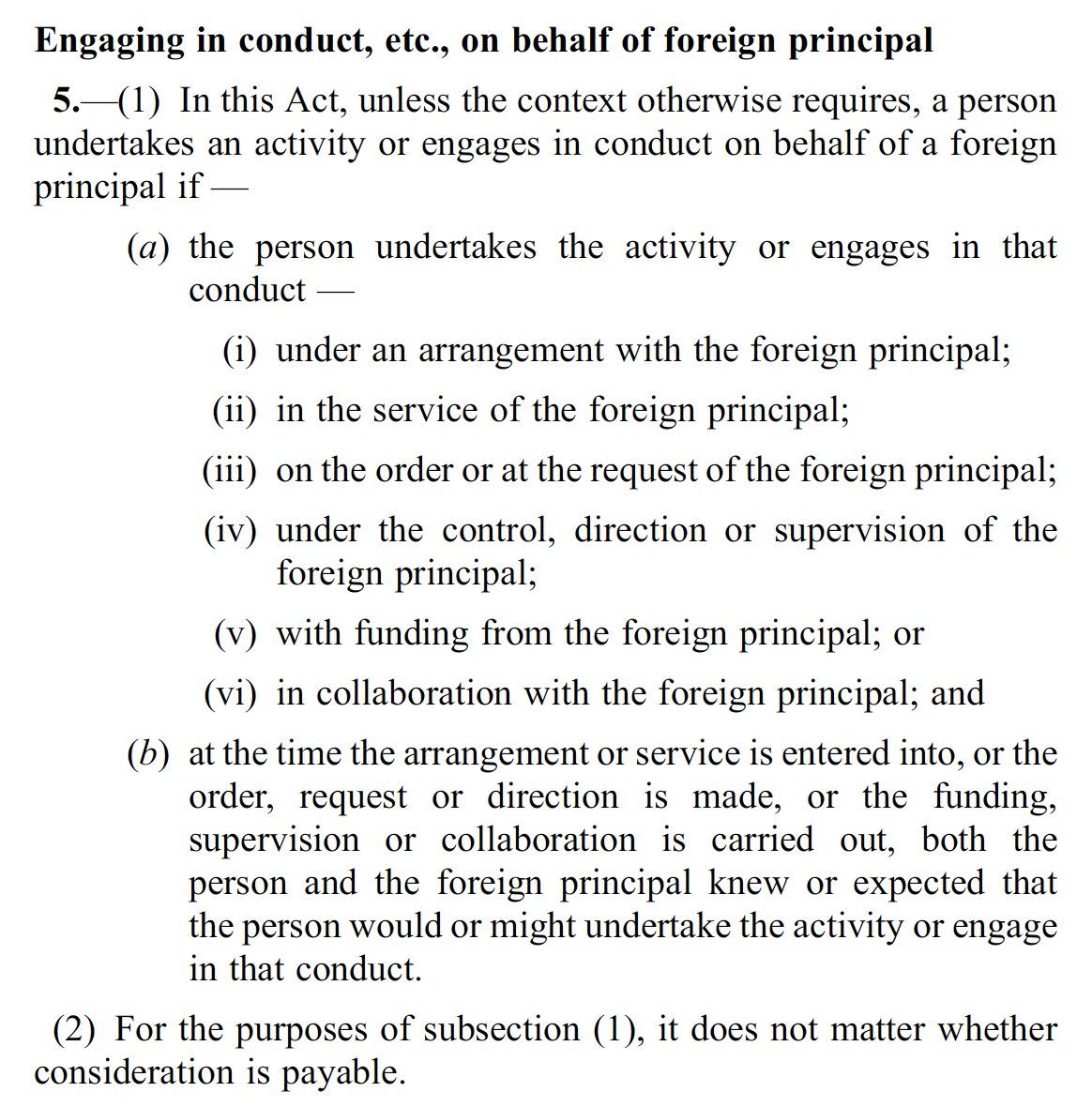
FICA is concerned about things that are "directed towards a political end in Singapore". If you're trying to bring about legal changes, or influence public opinion on a subject of controversy or debate, that's political.
So... anything activists might be working on lah.


Another thing that FICA cares about is hostile info campaigns, so "communications activity" is something that comes up a lot. This includes all sorts of publication and sharing, including sharing a URL, IP address, or password.
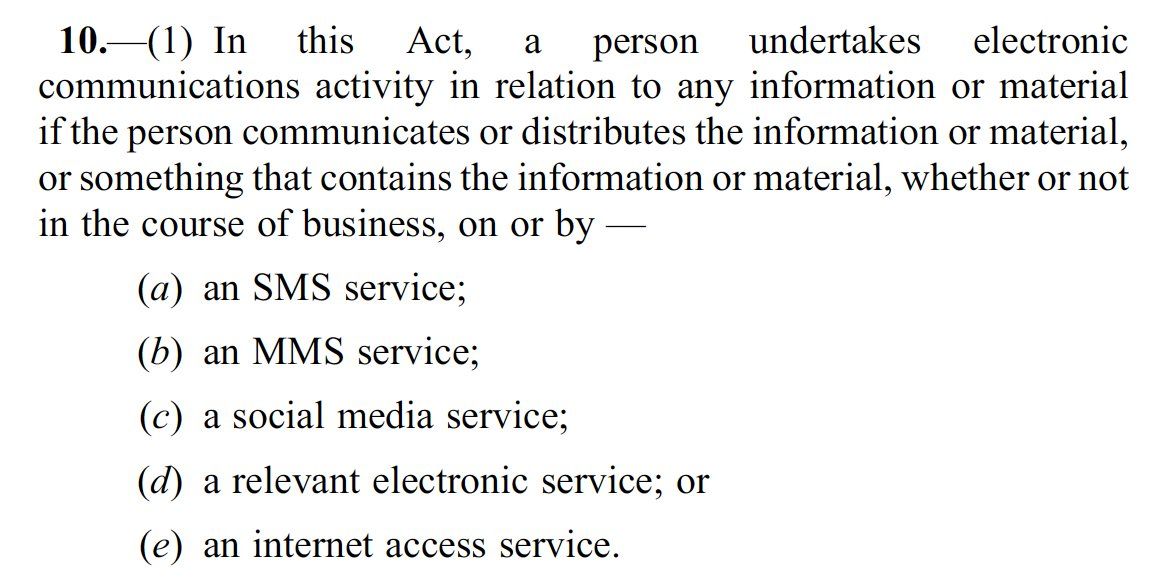
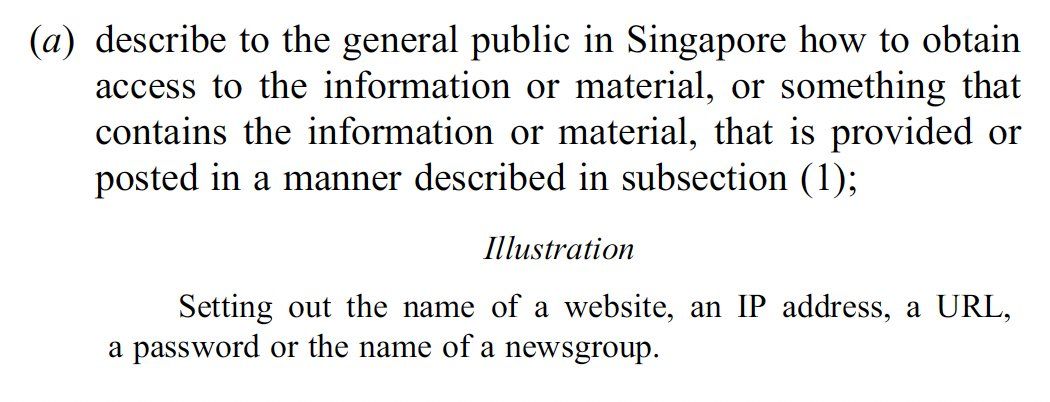
Okay, now we've covered the main definitions, let's move on to Part 2 of the law, which criminalises "foreign interference by electronic communications activity".
If you publish information in Singapore on behalf of a foreign principal knowing that it's likely to be directed to a political end (remember the definitions above!), and you don't mention there's a foreign principal, or engage in deception, it's a fine of up to S$50,000 and/or up to seven years imprisonment.

If you publish information in Singapore on behalf of a foreign principal intending to get someone to do something directed towards a political end, and you don't mention there's a foreign principal, it's a fine of up to S$100,000 and/or up to 14 years in prison.

For good measure, doing anything with the intention of prepping or planning for the offences mentioned in the previous two tweets is also illegal, even if you don't end up committing any of those offences.
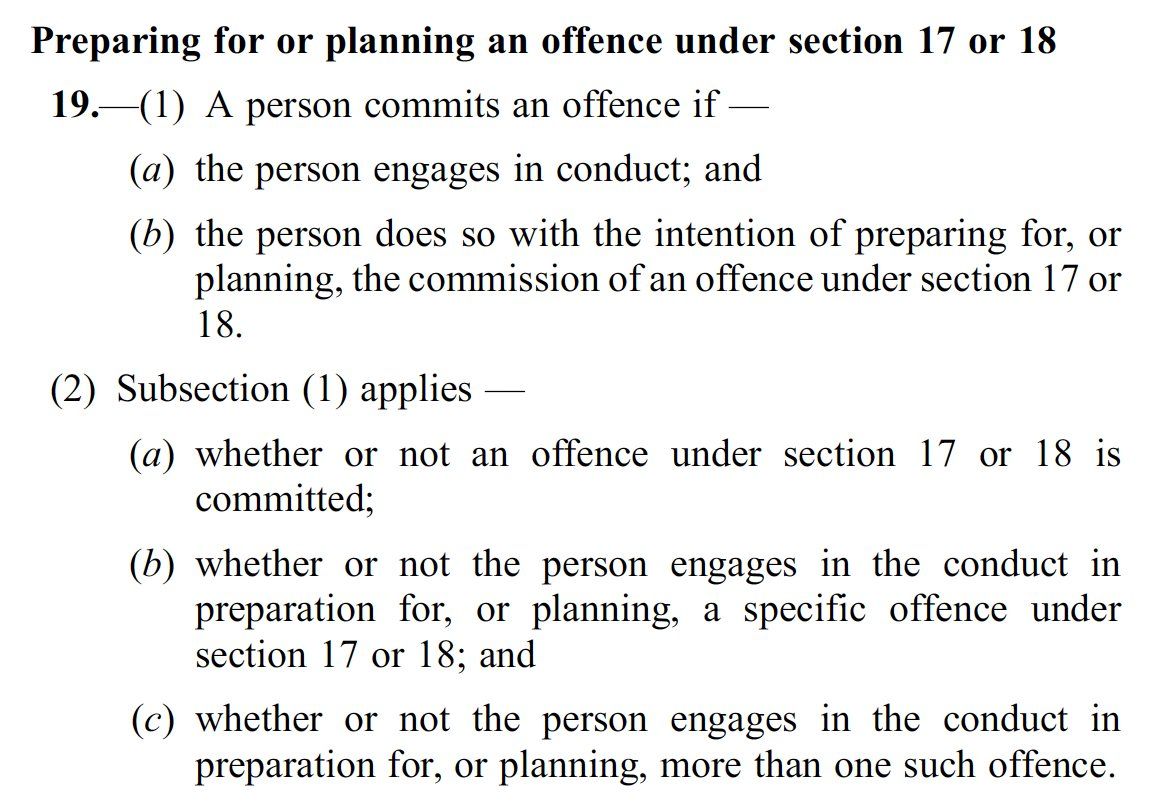
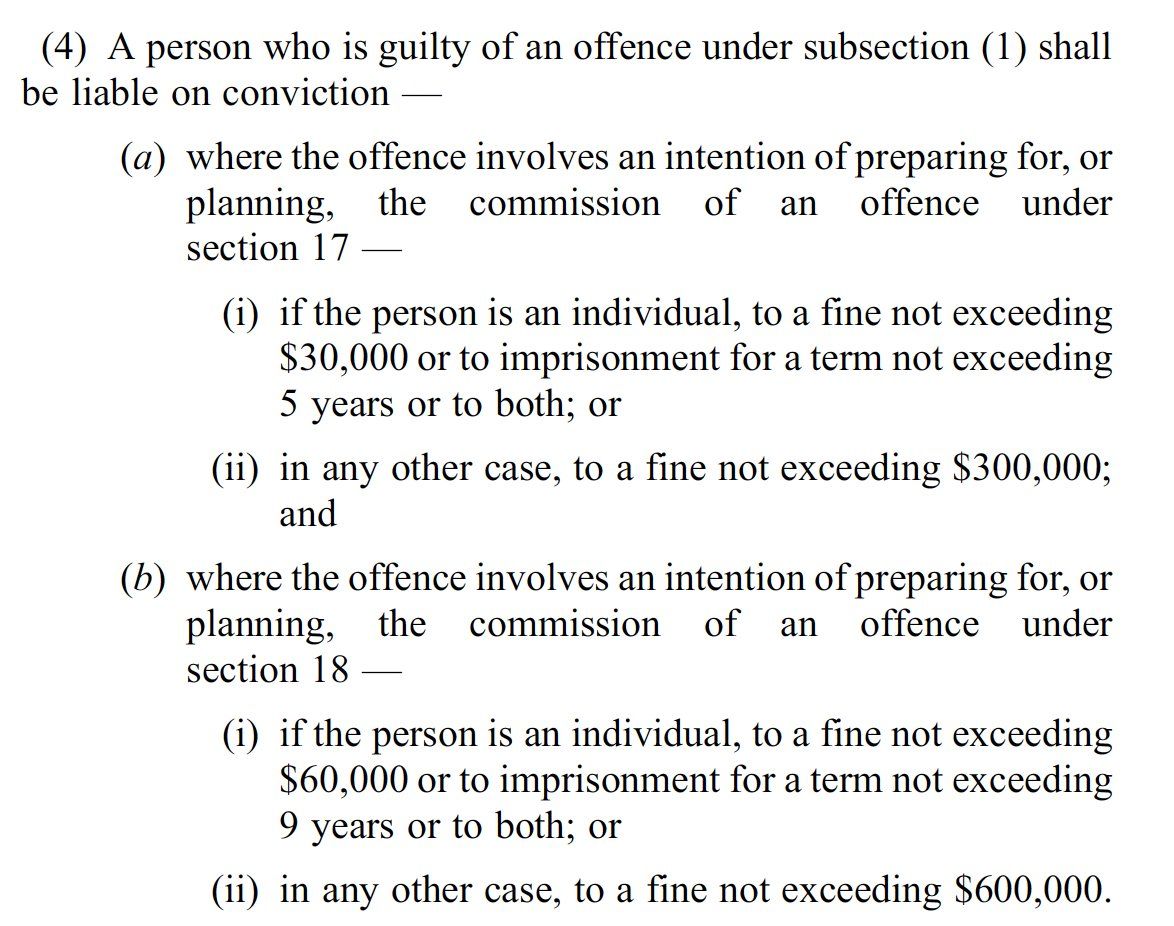
Okay, next part! The Minister for Home Affairs can issue directions against online communications activity if, in his opinion, it has been undertaken (or suspected to have been undertaken) by/on behalf of a foreign principal, and the Minister thinks it's in the public interest to take action.
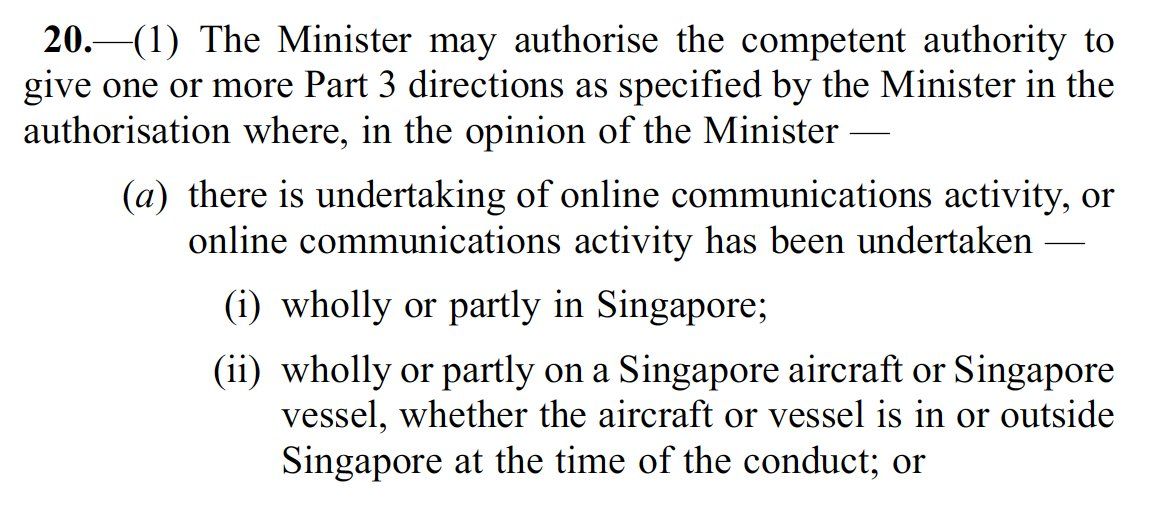
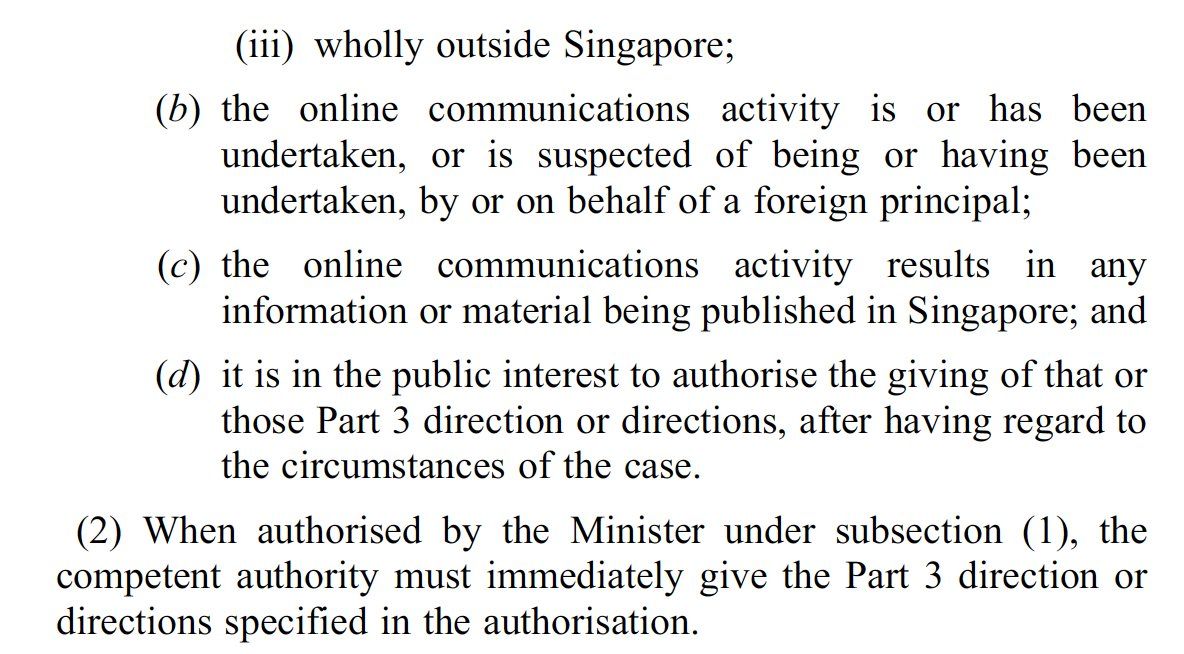
Here we've got to do a little aside to point out "public interest" is very widely defined. Like POFMA, it includes diminishing public confidence in the government, and securing "public tranquility", whatever the heck that means.
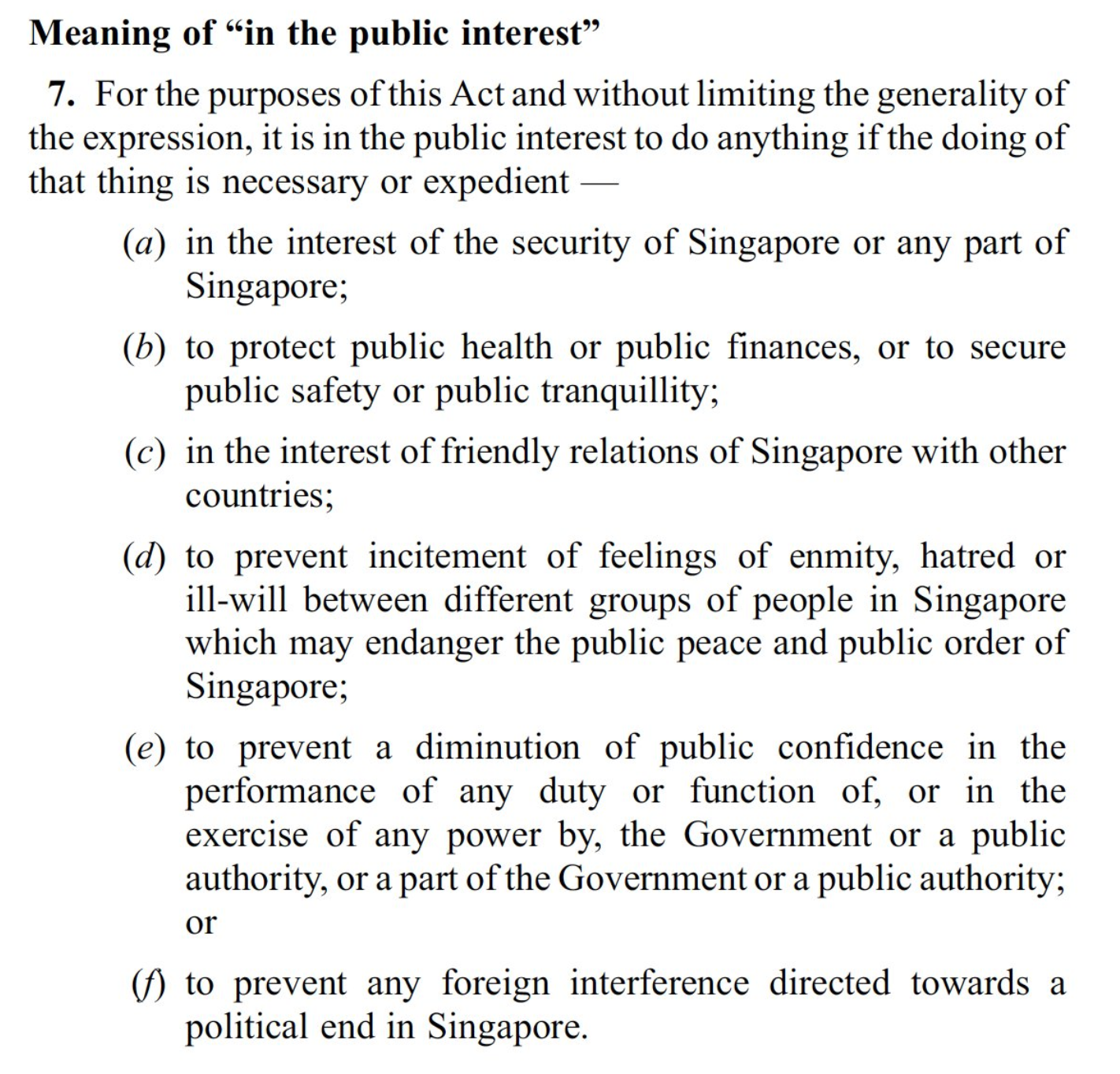
If an online location, like a website, kena a direction from this part of FICA once (with a couple of exceptions), the Minister can make it a "proscribed online location" for up to two years.
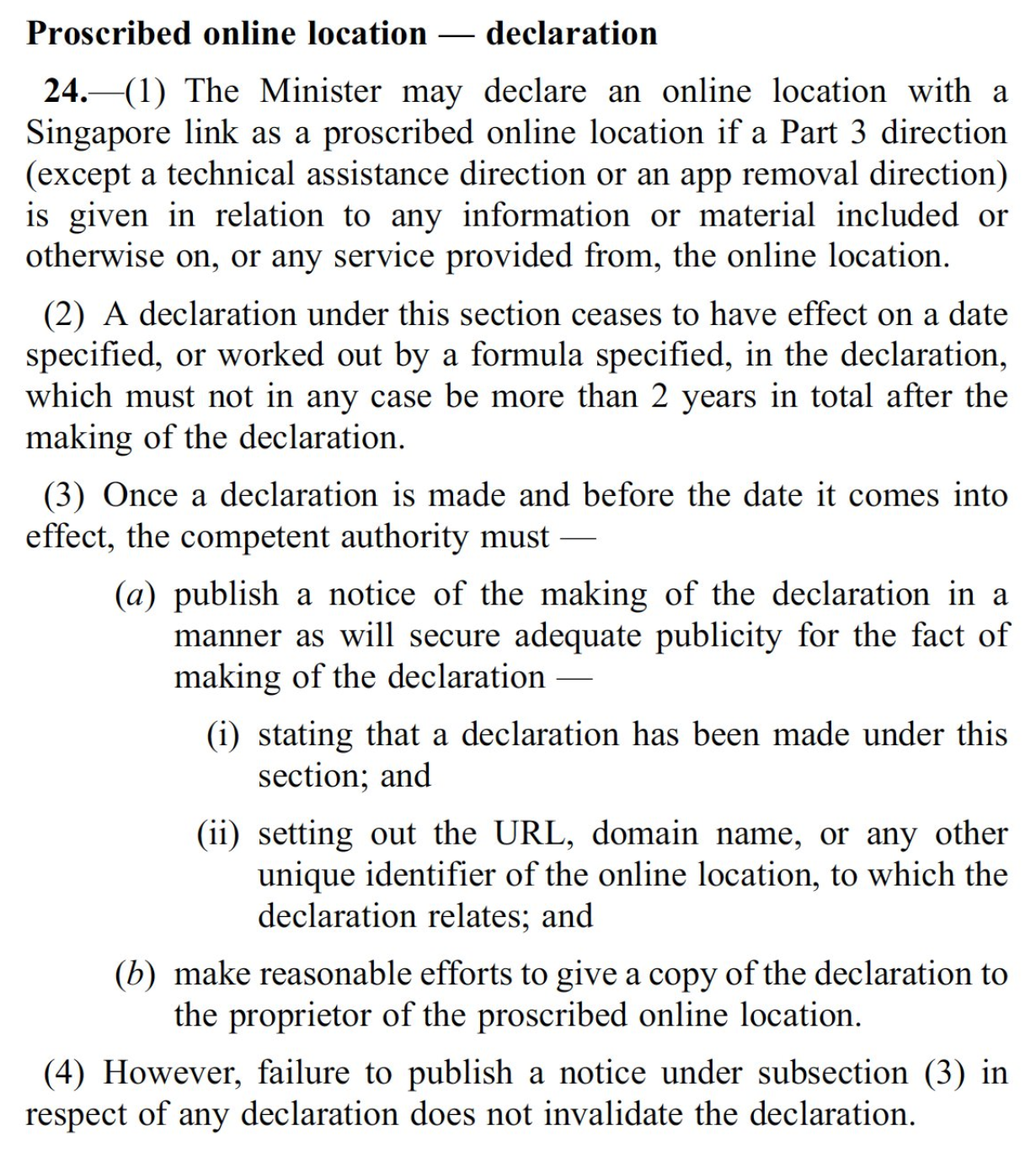
Being made a proscribed online location will suck because it effectively de-monetises you. It becomes an offence to seek benefit, as well as an offence to provide support.
Basically, if you're a media outlet that kena proscribe, wave your business goodbye.
(POFMA also has something similar to this, but it requires getting at least three POFMA orders within a six-month period.)
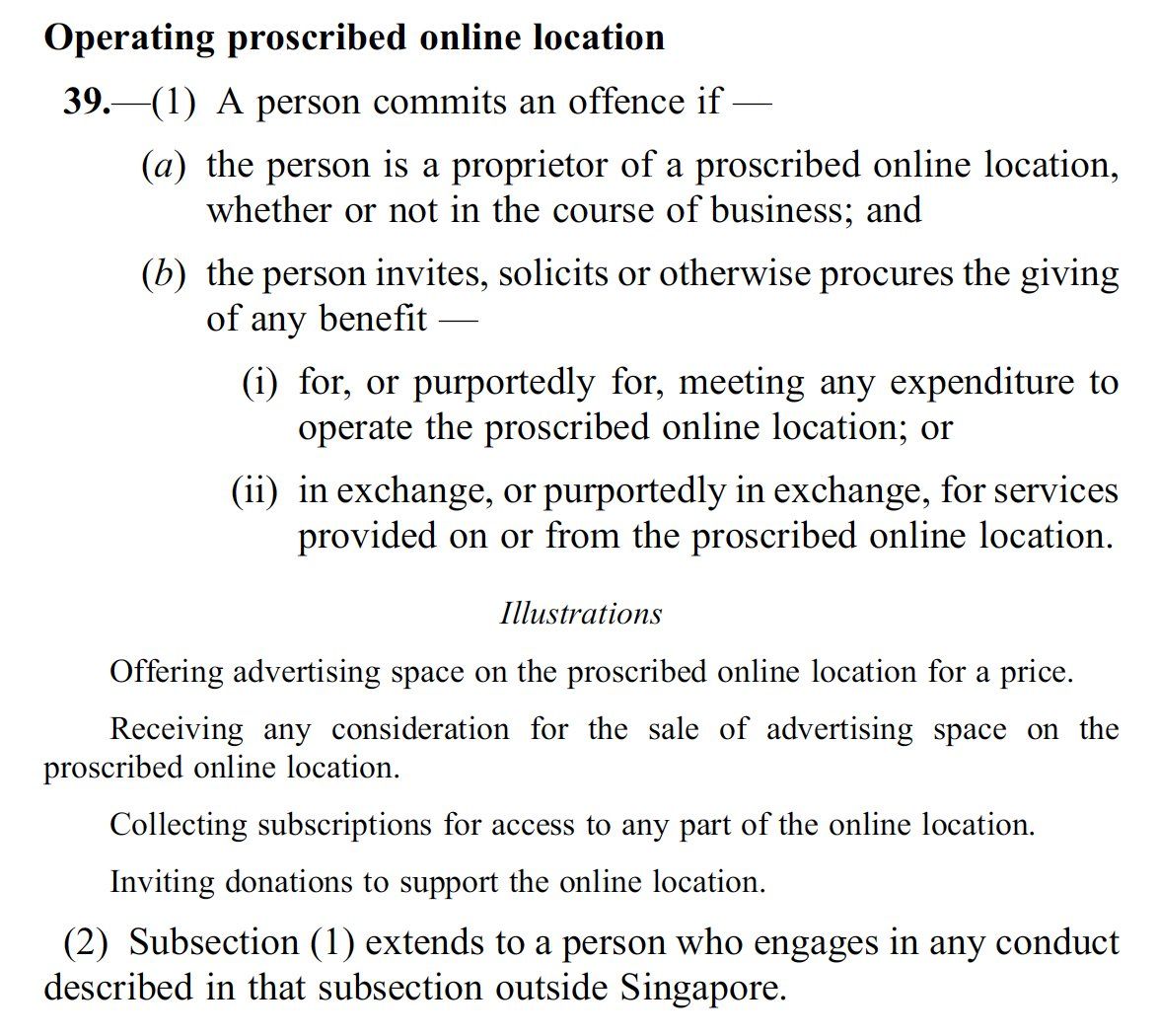

What else can the Minister order? He can order you to remove particular content and stop publishing it...
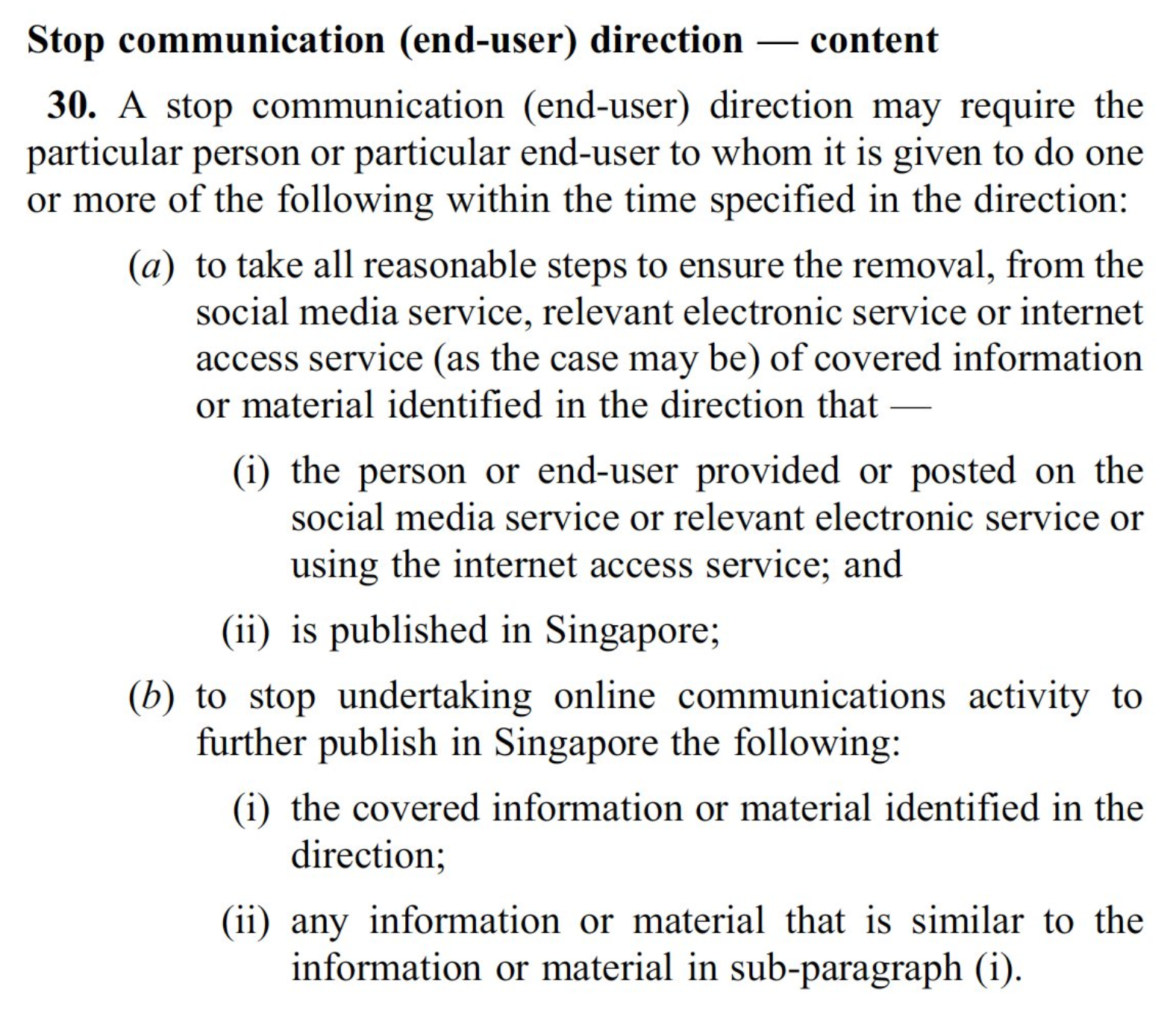
He can order social media platforms to disable or block access to particular content...
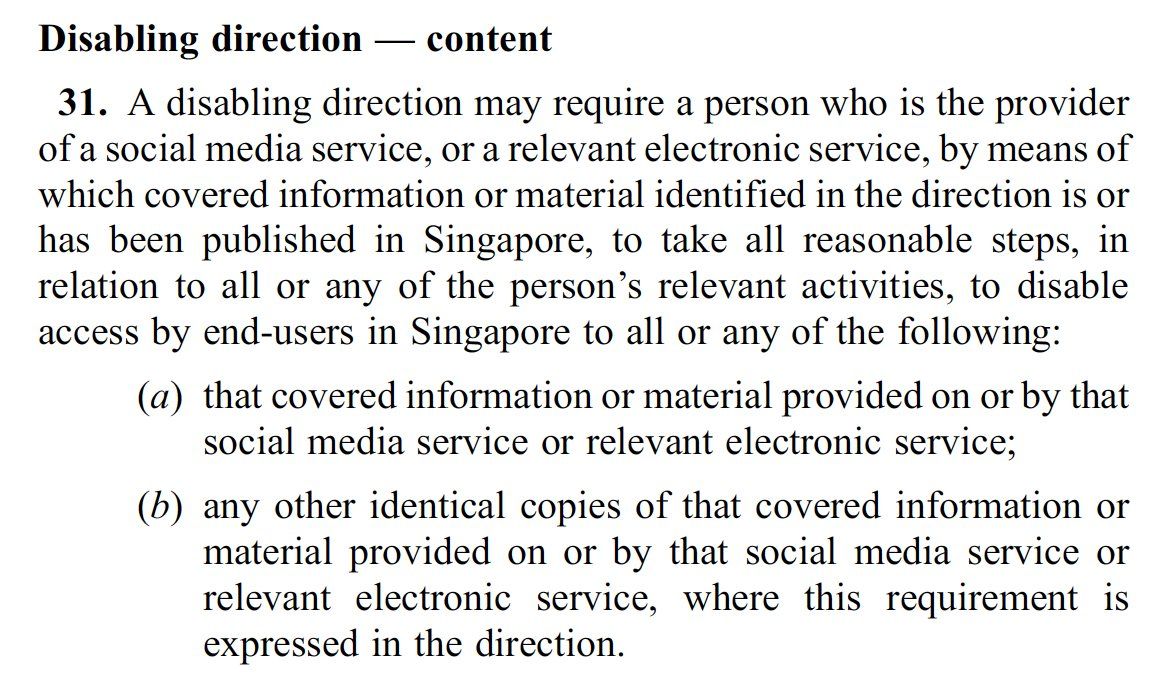
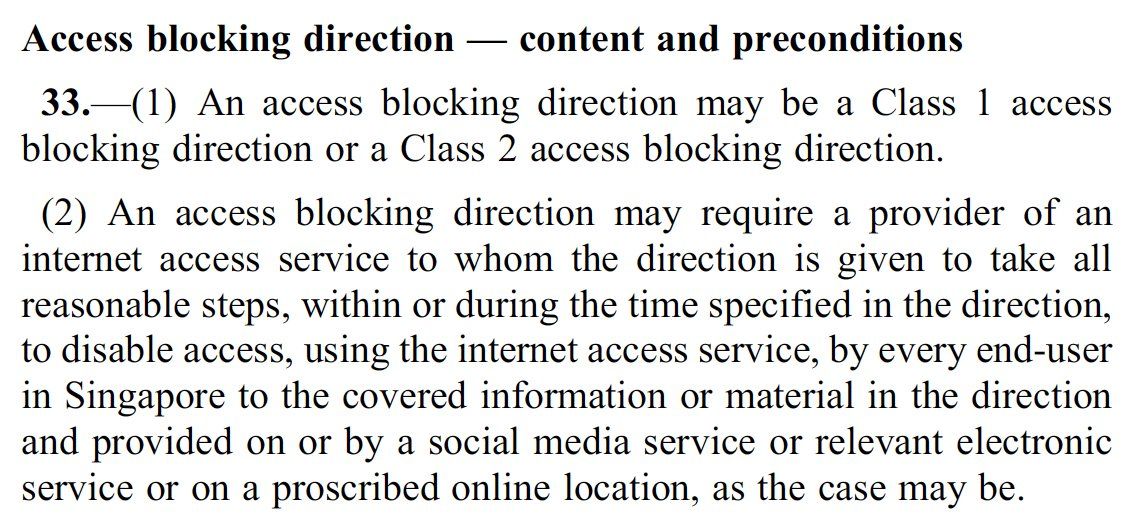
He can order you to publish a "mandatory message" from the government...
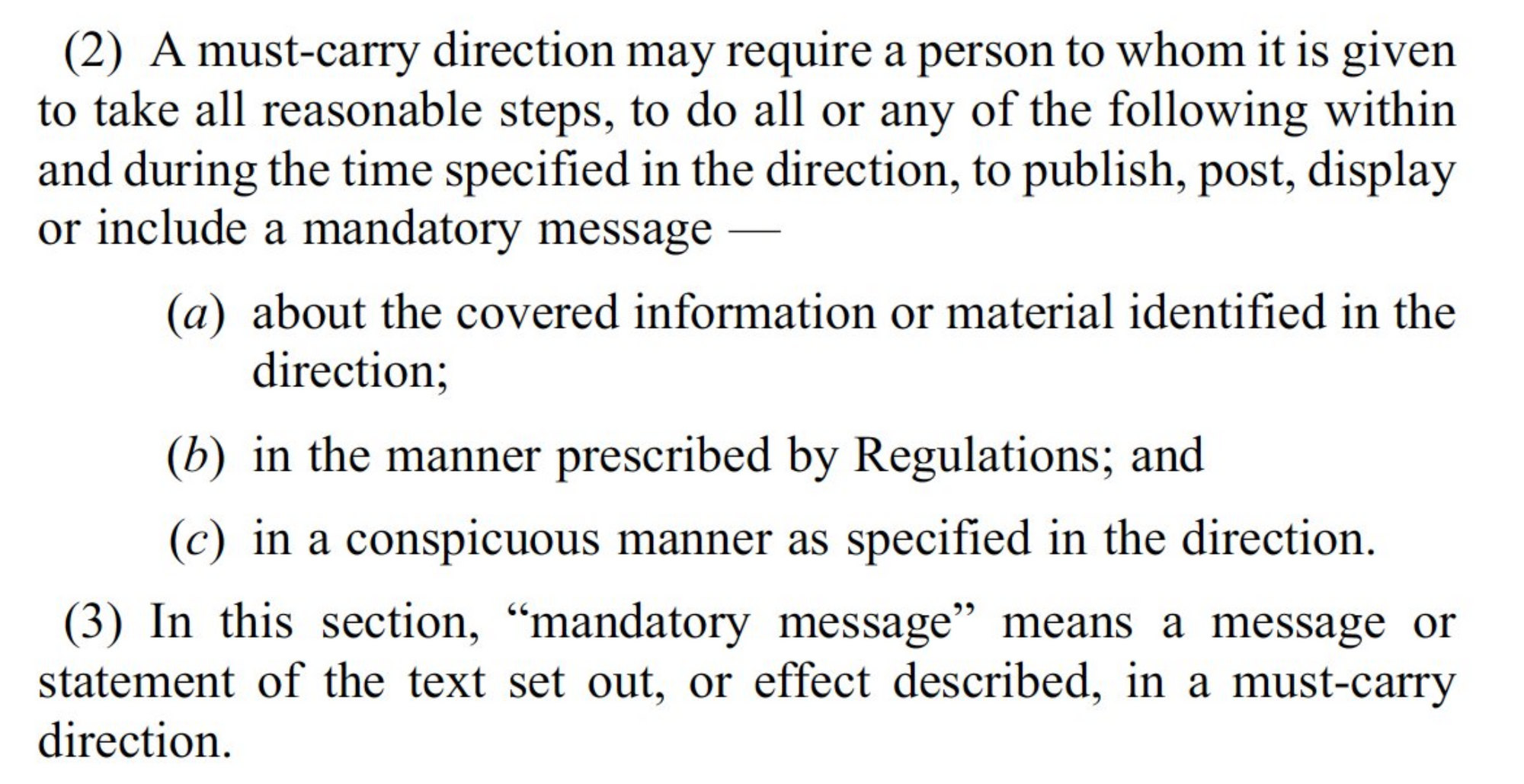
He can order platforms to restrict accounts or service...
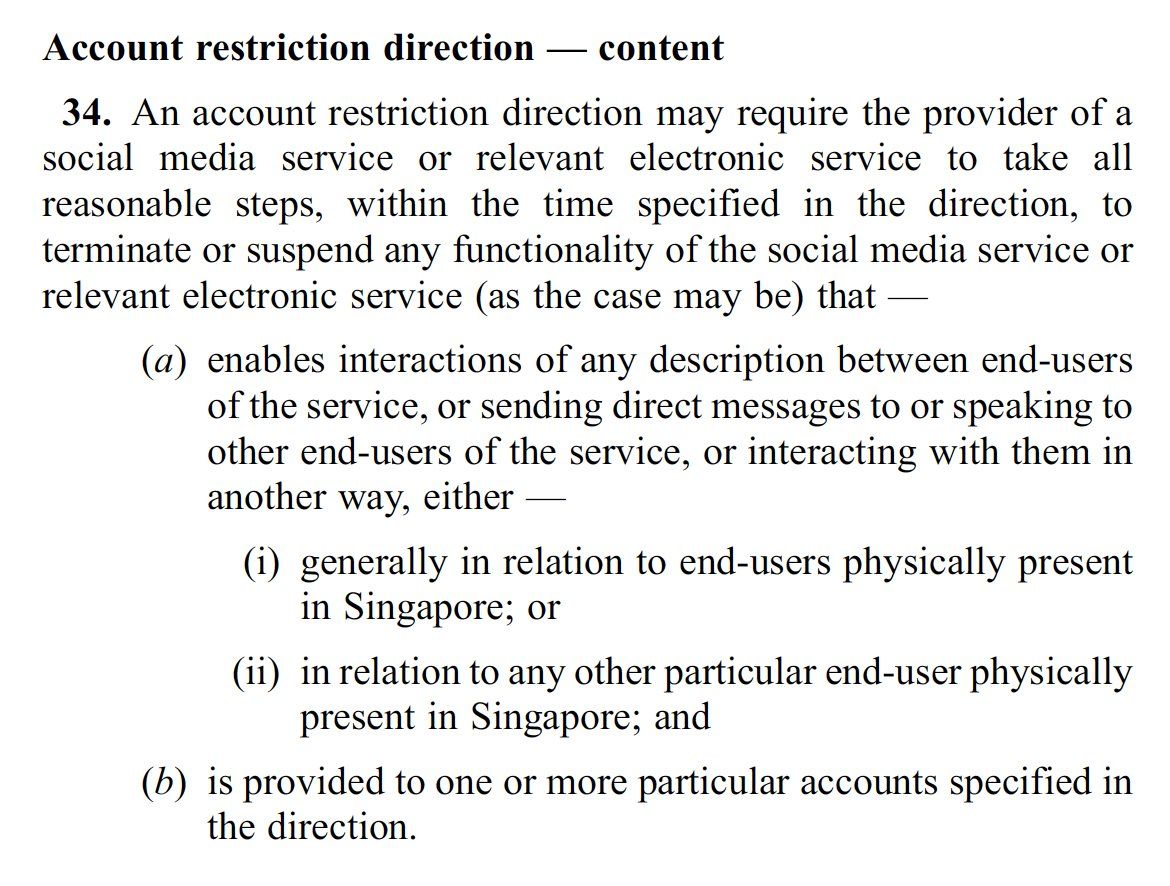
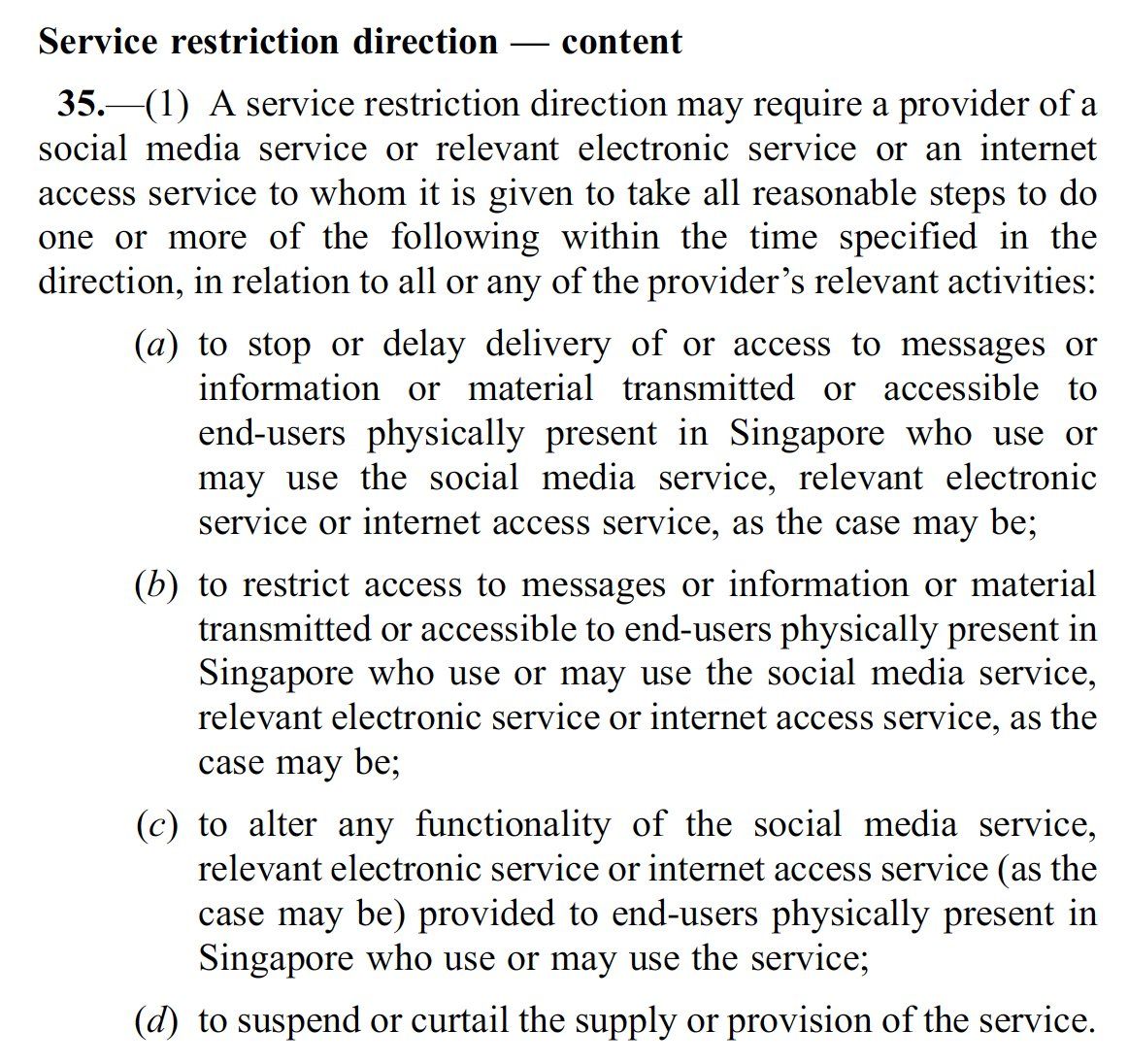
He can order you to hand over information for investigations...
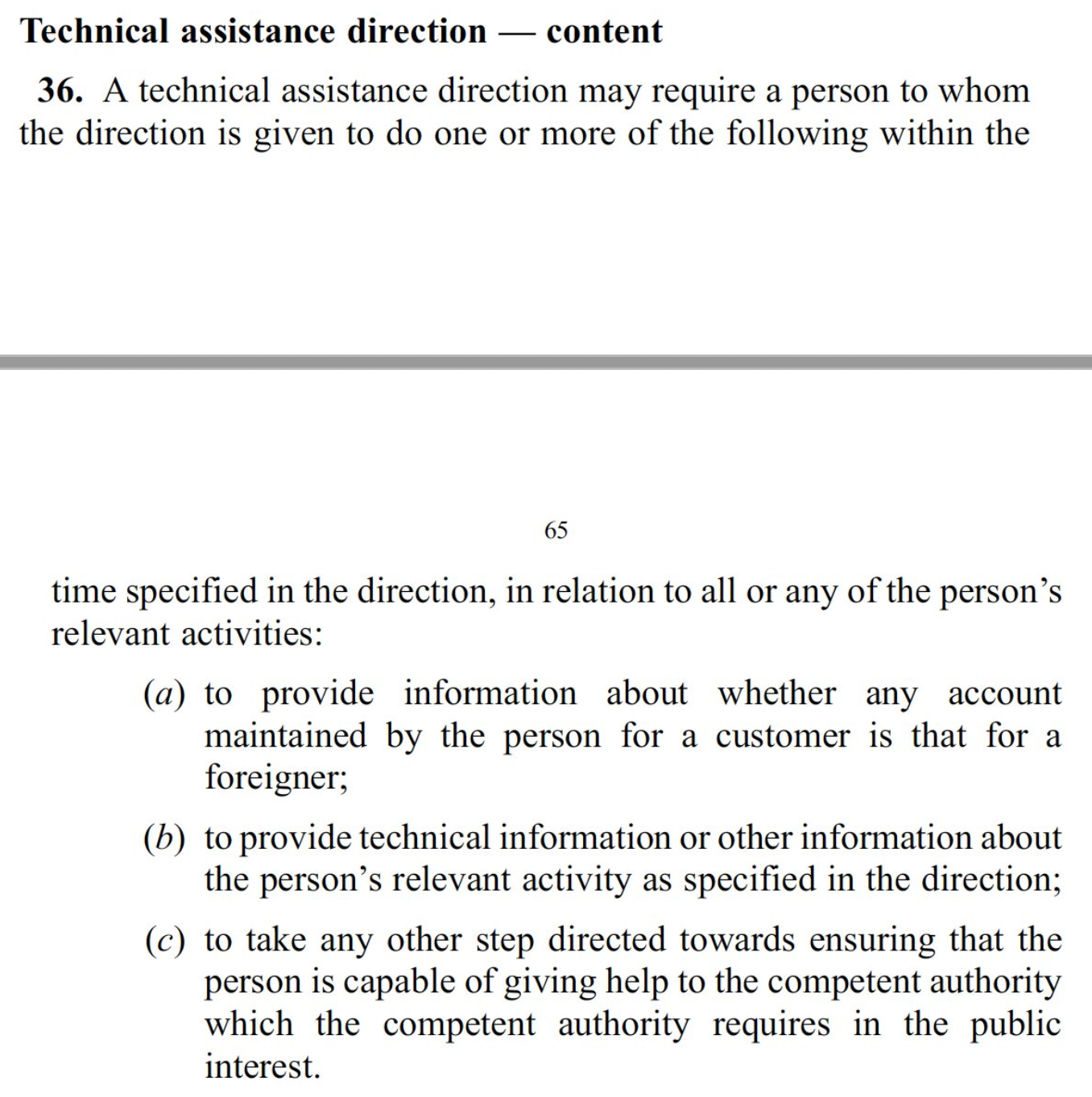
btw, if you get a technical assistance direction, you're not supposed to disclose getting one unless authorised.
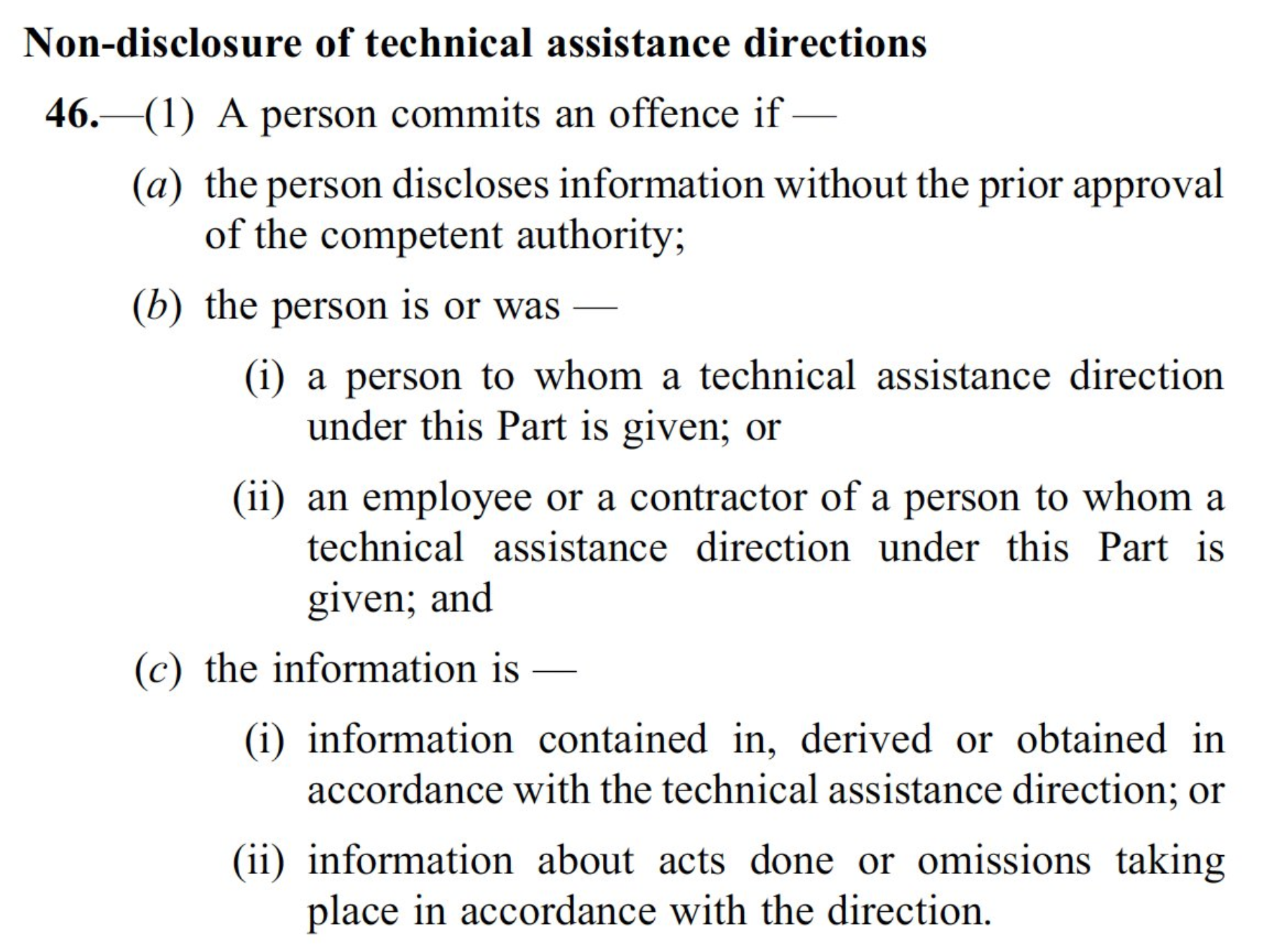
He can even issue orders that would ban an app from being downloaded in Singapore.
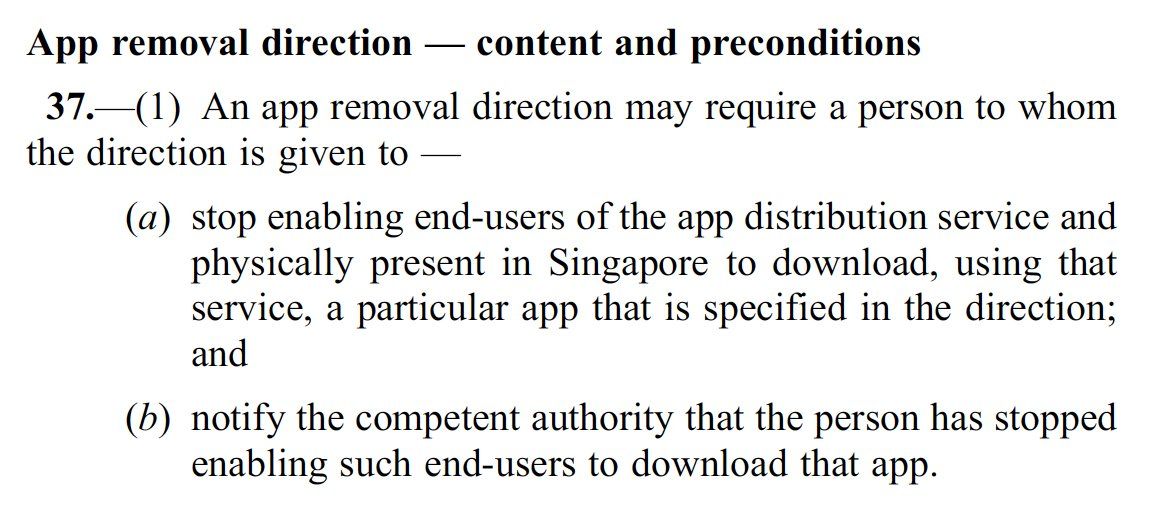
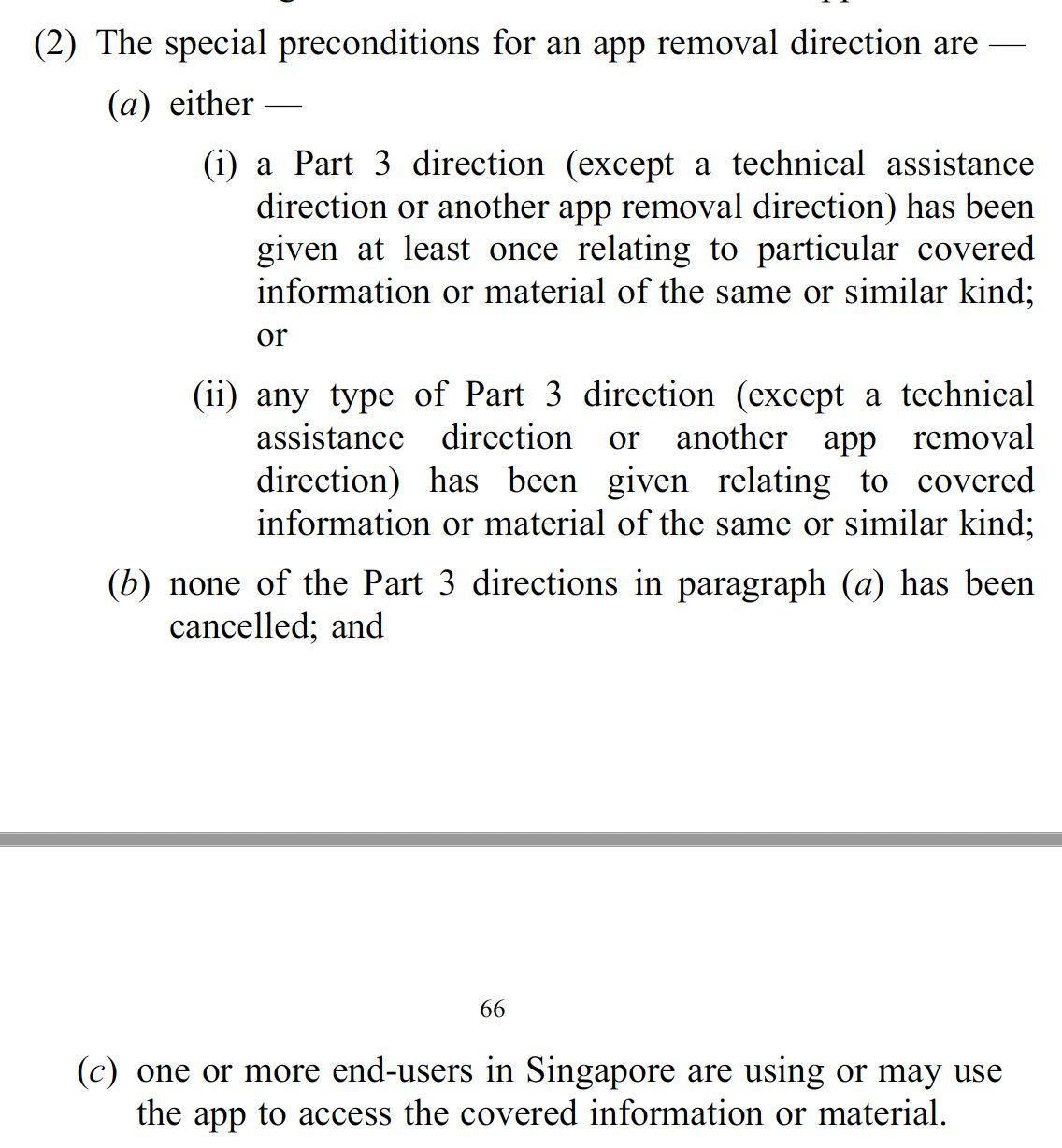
He can also order you to return money/property to a foreign principal or surrender it to the authorities.
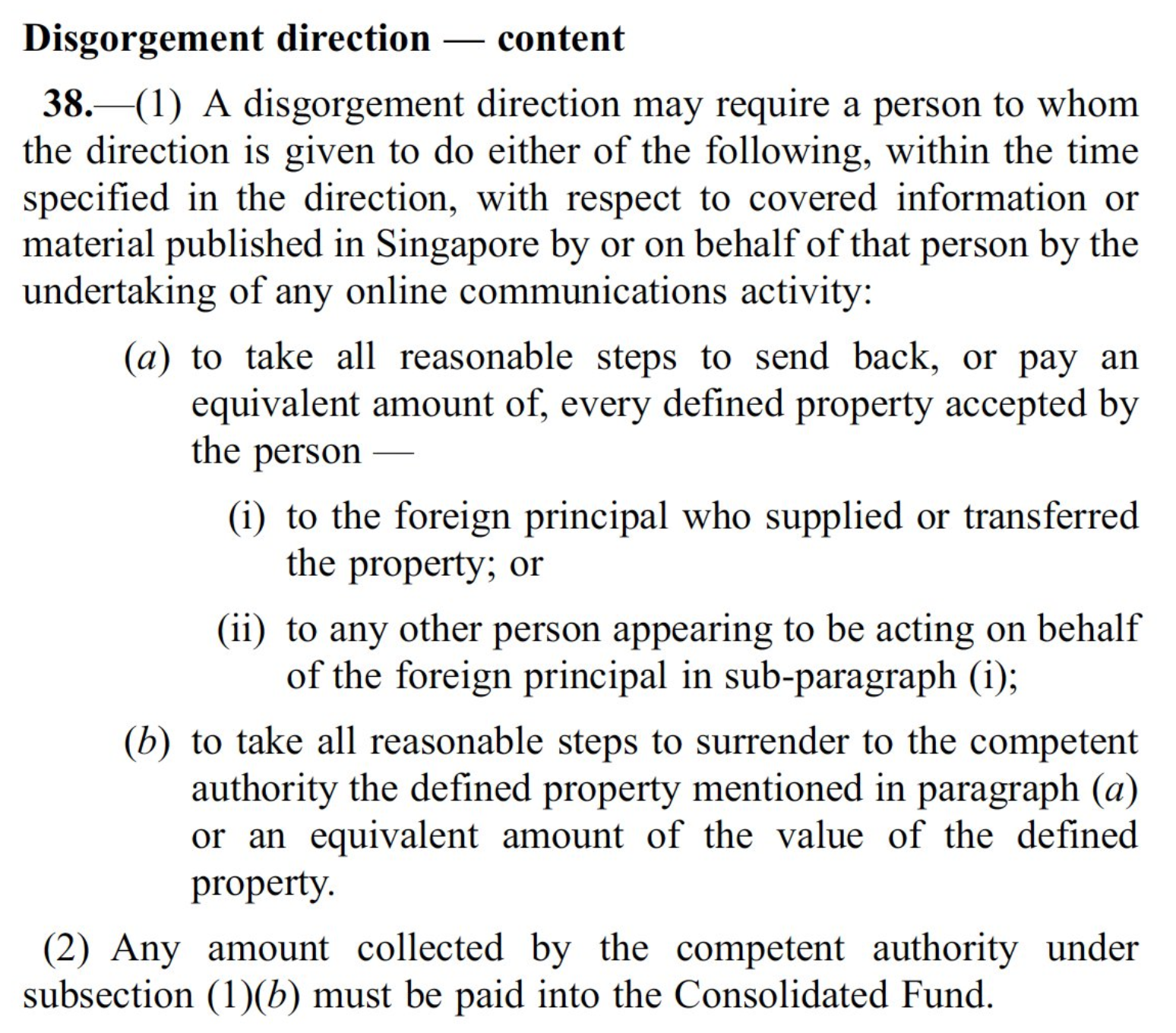
Some, like political parties, political office-holders, MPs, etc. are automatically "politically significant persons". But other individuals can also be designated as such if you do political things and the authorities think it's in the public interest to designate you.
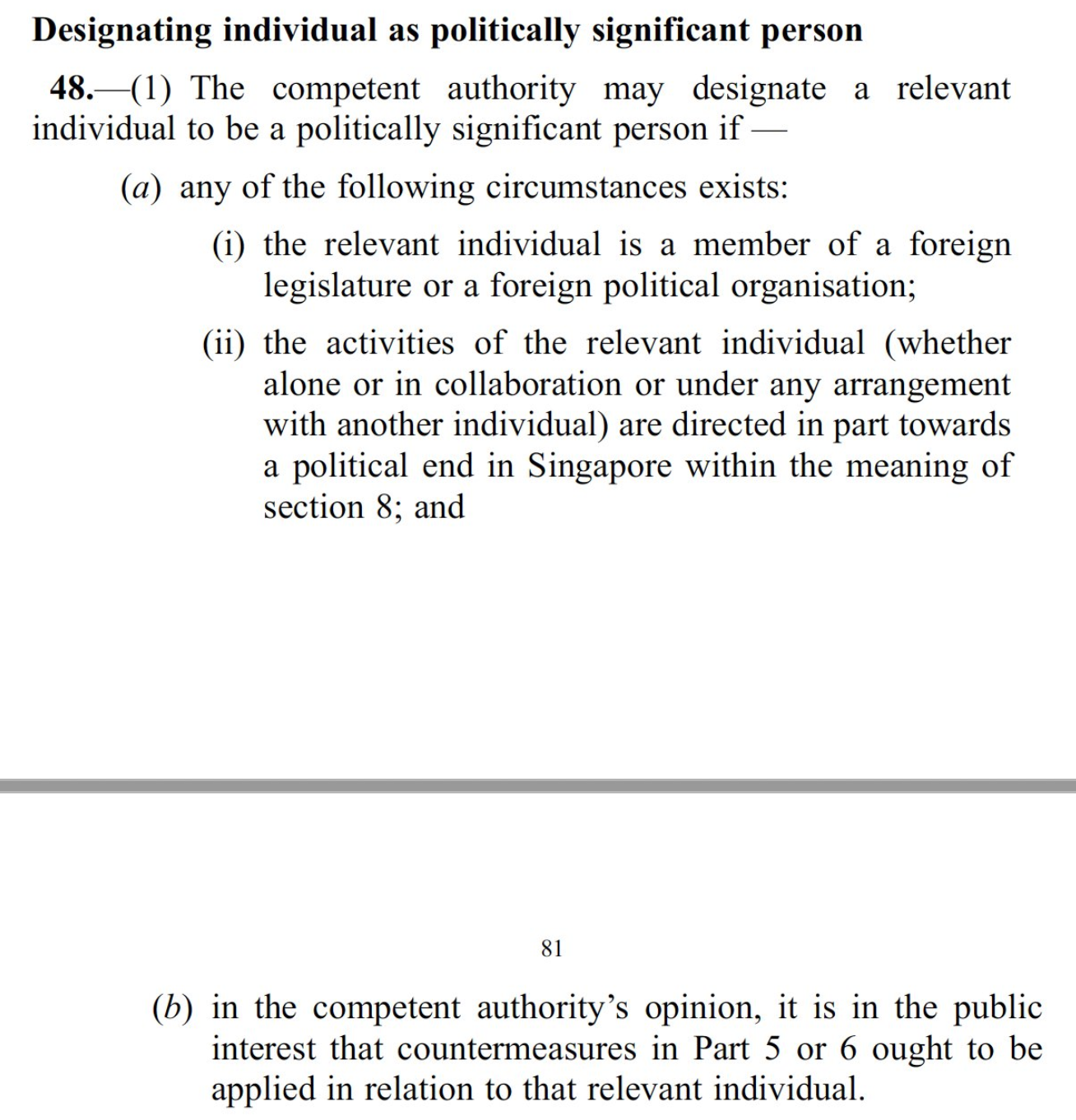
Before officially designating you, you should be given a chance to make your representations. But they don't have to give you that chance too, if they think it is "not practicable or desirable".

If you are a Part 4 (i.e. designated) politically significant person, then a "political donation" is defined as:
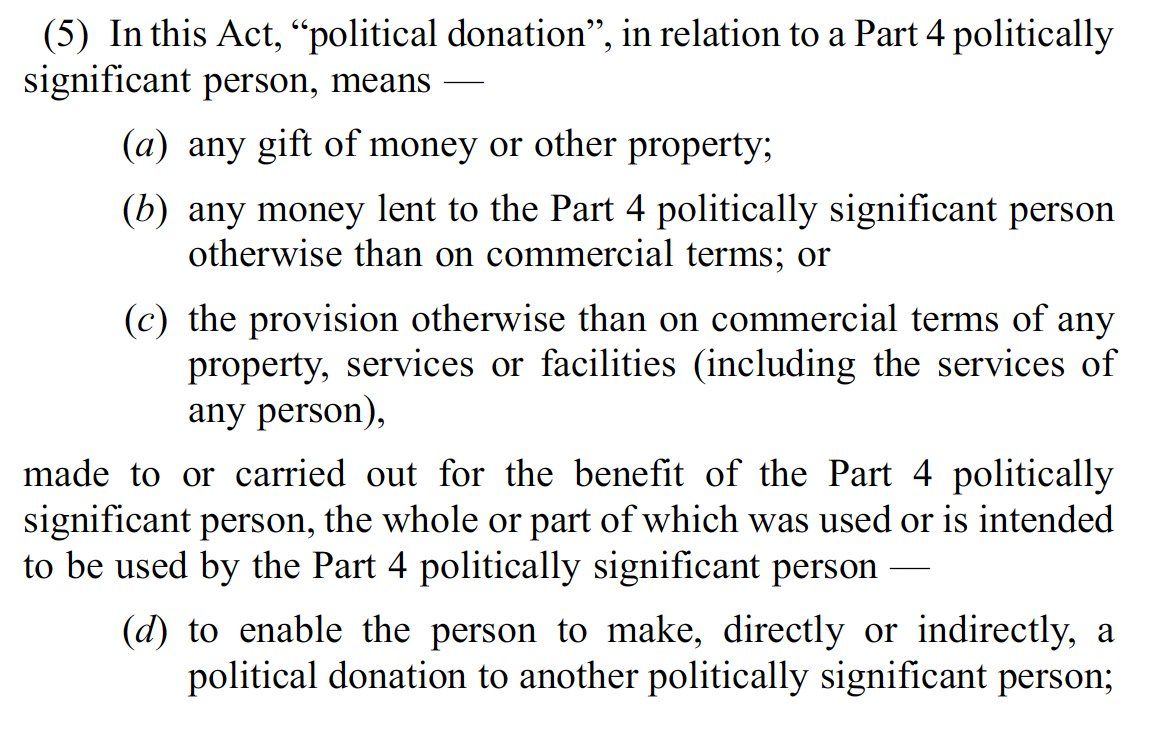

Politically significant persons are required to report major donations (i.e. >S$10,000), and can only take anonymous donations up to a total of S$5,000 a year. They are also not allowed to get donations from foreigners or Singaporeans under 21.
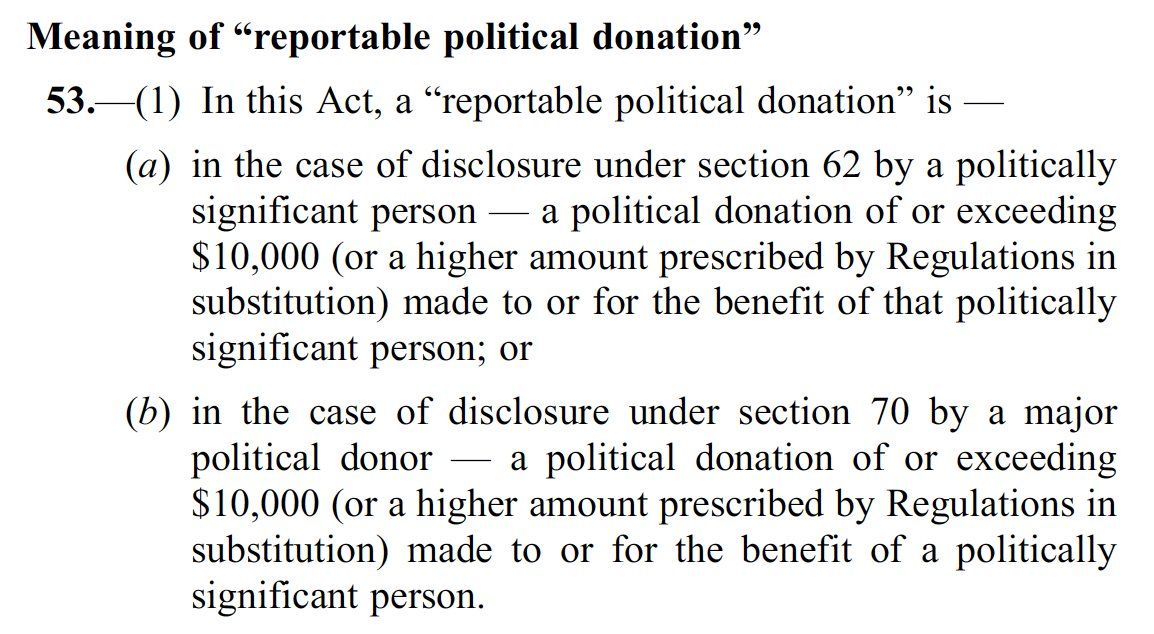
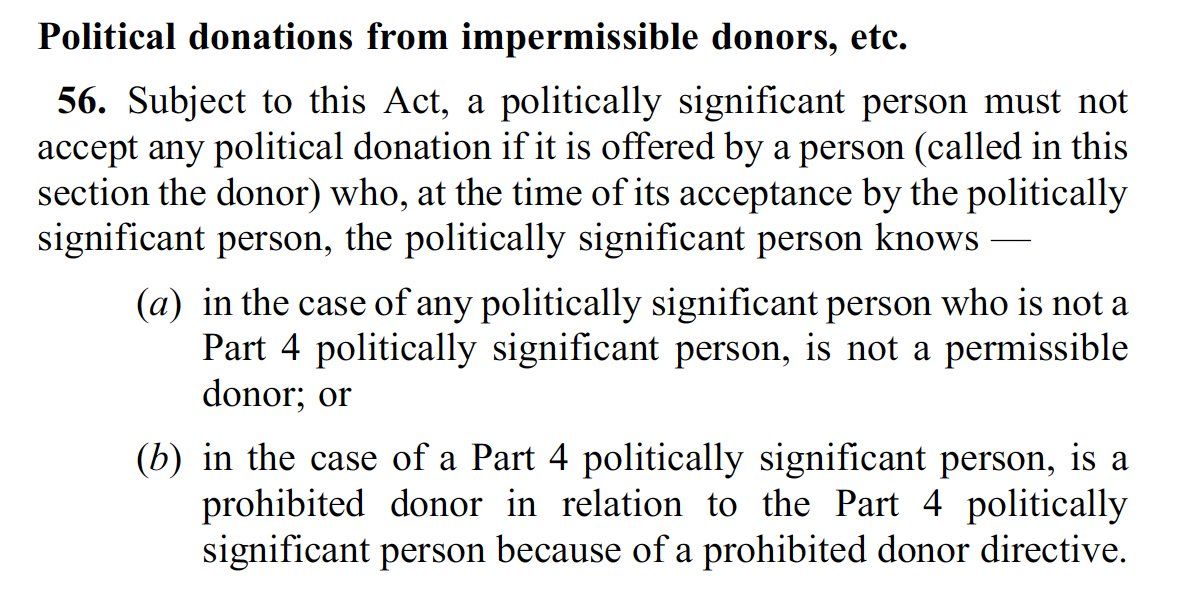
Politically significant persons are also supposed to disclose "reportable arrangements" with foreign principals. (This is where I, as a freelance journalist/writer who has done work with foreign groups and companies, am like "heh?")
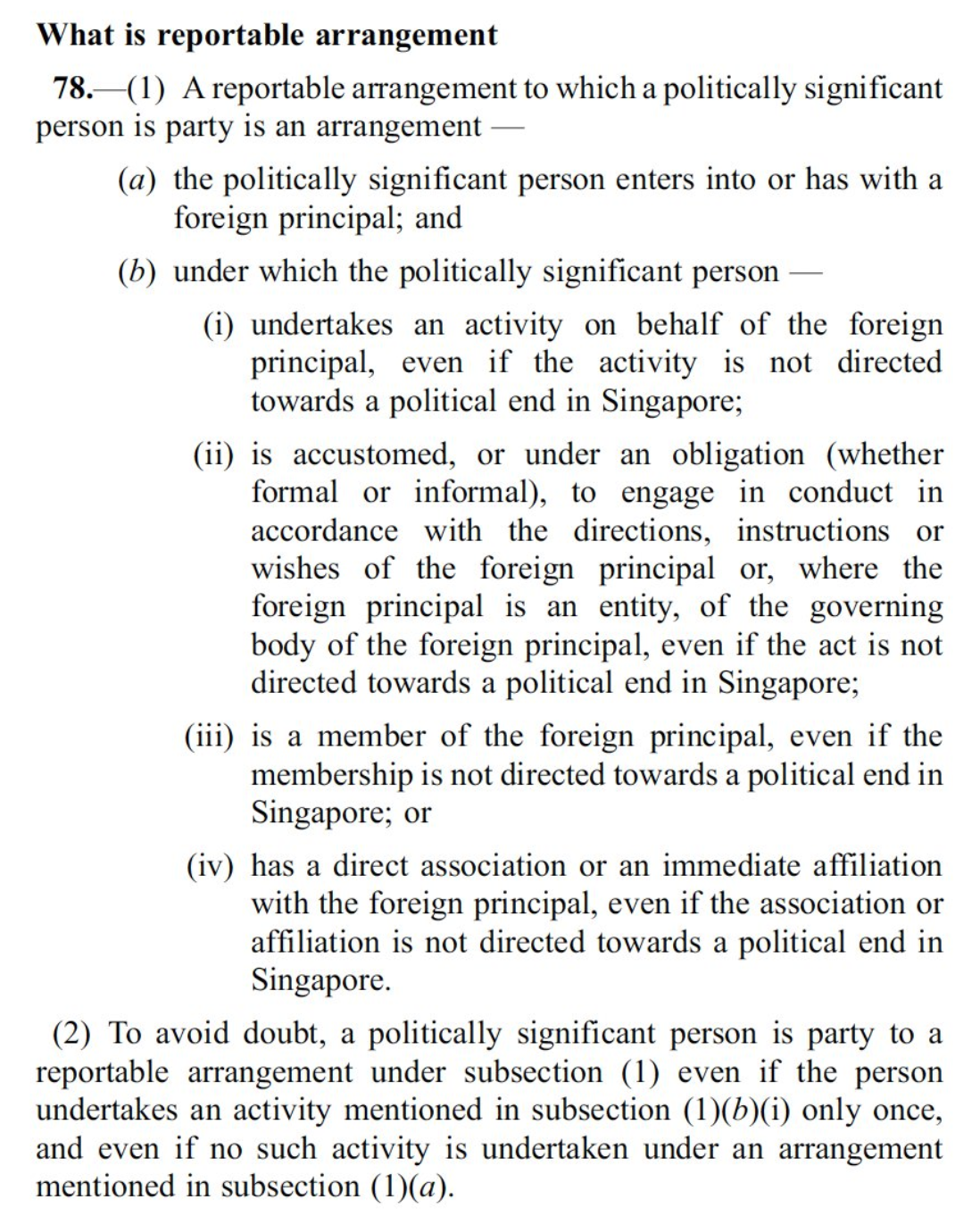
Later on in FICA it also says the authorities can order you to end these arrangements.

Then there's this "transparency directive", where they can order politically significant persons or publishers of newspapers and broadcasting services to put up disclosures incl. nationality of the author, identity of foreign principal, etc.
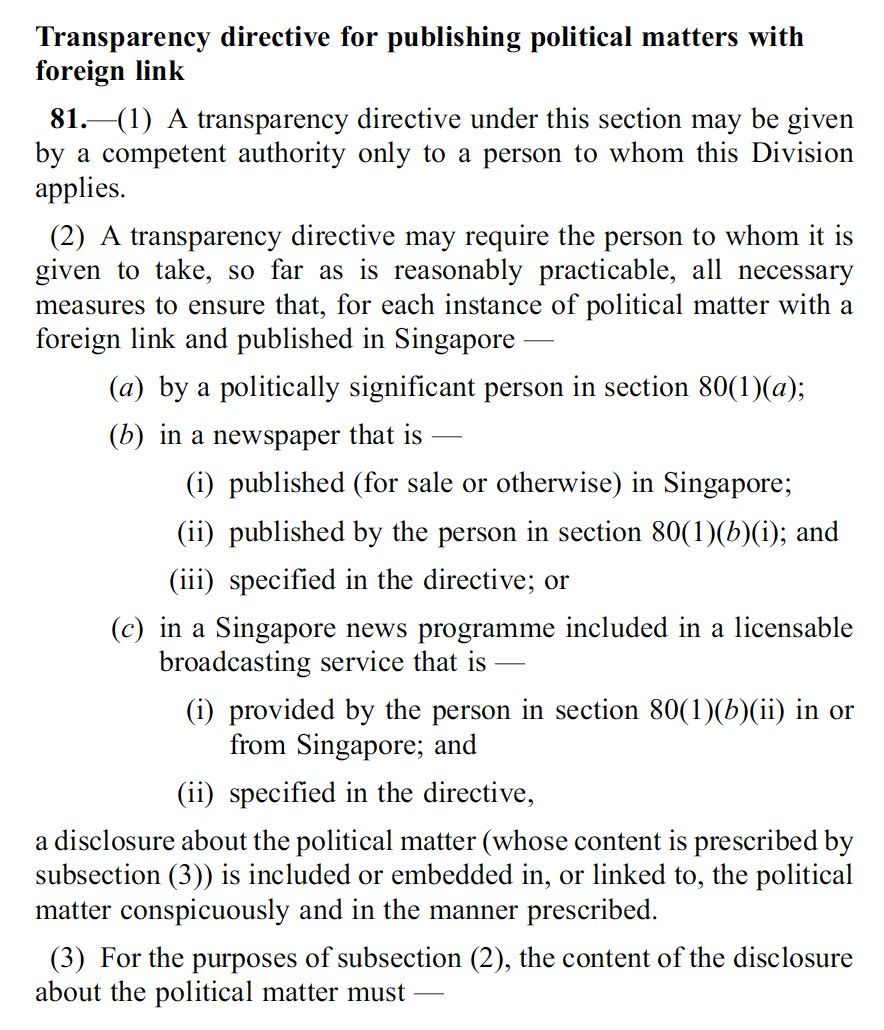
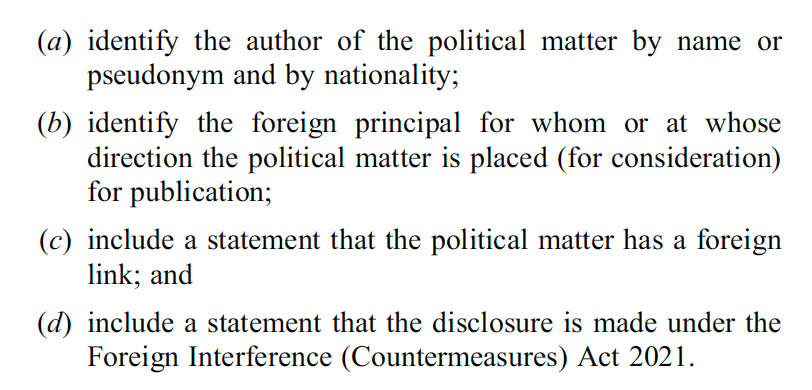
What if you're the target of such directions and you don't like it? If it's a Part 3 direction you can go to a Reviewing Tribunal, appointed by the President on advice of the Cabinet (she has no discretion). The Minister gets to set the procedure the tribunal follows.

If you don't like that you've been designated a Part 4 politically significant person, you can appeal to the Minister. The Minister was the one who appointed the authorities who designated you in the first place, by the way.
Grounds for judicial review of the decisions of the Reviewing Tribunal and Minister are also limited to procedural matters.
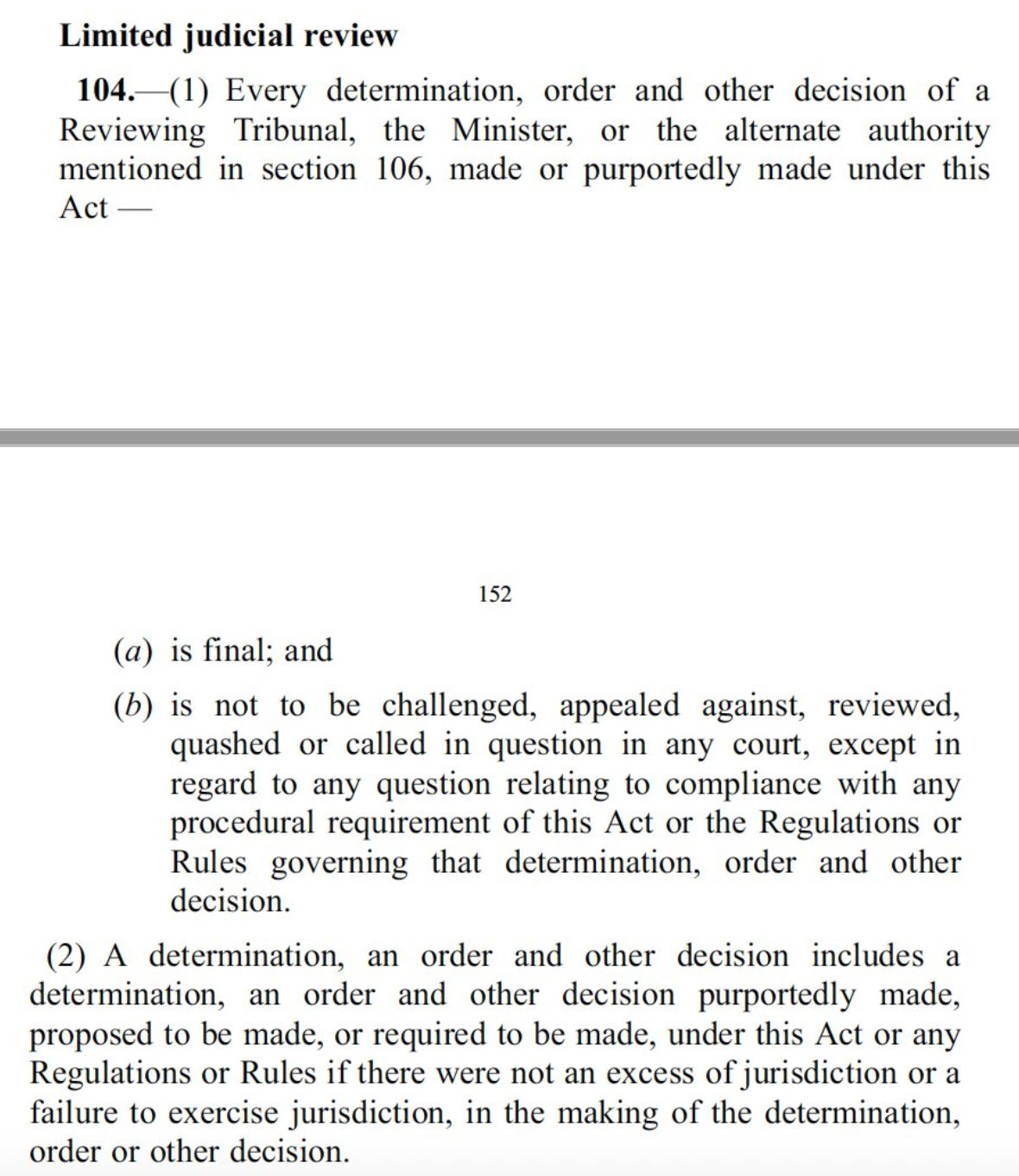
Also read: this We, The Citizens special issue on concerns about FICA. #WhatTheFICA
